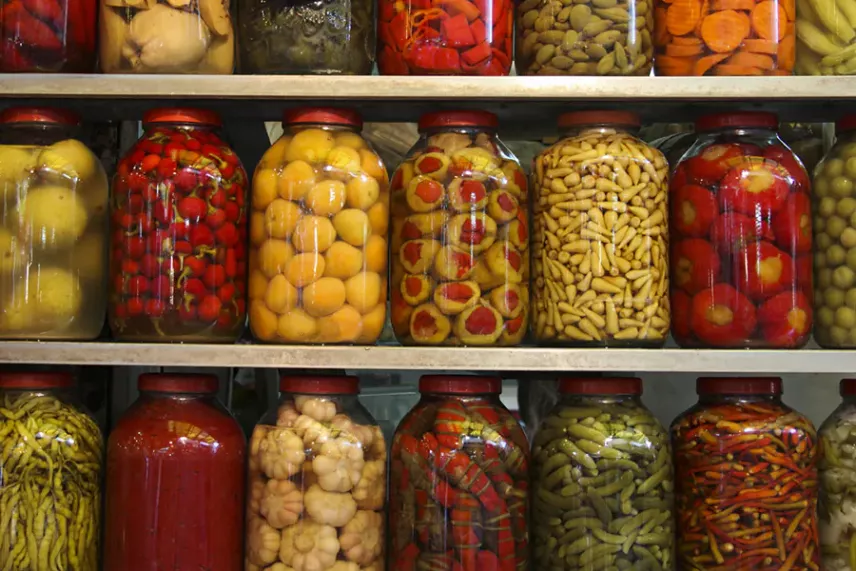
Sterilization and Pickling of Vegetables and Fruits
Preservation of vegetables and fruits for the winter can be carried out in several ways, for example, by sterilization or pickling. Sterilization of canned vegetables and fruits is carried out by heating hermetically sealed jars of canned food to a temperature at which all harmful bacteria are destroyed. In this case, there is no need for any preservatives in vegetables or fruits. Sterilized canned vegetables and fruits are well stored and retain their taste for a long time. The only disadvantage of sterilization is the prolonged exposure of vegetables and fruits to high temperatures, for this reason they may lose their elasticity and other physical properties. Another option for preserving vegetables and fruits for the winter is pickling. In this case, preserving vegetables and fruits for the winter allows the use of various marinades as preservatives. For pickling, vinegar is usually used as a ready-made substitute for lactic acid, which is formed if vegetables are preserved by fermentation or pickling.
Canned Vegetables
The best way to store vegetables is by sterilizing the food. The principle of sterilization is that the products are placed in sterilized jars, hermetically sealed, and then heated with steam or water. To improve the taste with this method of preservation, only salt and sugar are added to the products. If you preserve vegetables with the addition of marinade, then you can limit yourself only to sterilizing the prepared containers.
You can use any type of vegetable for marinating. In the winter season, they can be served with grilled meats, they can also serve as a good snack or be used in the preparation of vinaigrettes and salads. The quality of marinades depends on the type of vinegar. A very good marinade is obtained by using grape vinegar or table vinegar infused with aromatic herbs. Strong 9% vinegar must be diluted in half with water, and then add salt, sugar, spices, let it boil and cool. As spices, you can use pepper, cloves, cinnamon, nutmeg, coriander, bay leaf and other spices.
Cooked vegetables should be placed in glass jars and pour chilled vinegar. In order to prevent mold from forming, the marinade must be poured with a thin layer of vegetable oil. Close jars with parchment paper and tie with twine. Marinades should be stored in a cool, dry place. In another case, prepared vegetables are placed in sterilized jars, poured several times with hot marinade, and then corked with tin lids. You can preserve not only one type of vegetable, you can preserve and combine different types of vegetables. So, for example, cucumbers and tomatoes are wonderfully combined in one jar. In the same way, you can preserve vegetable salads, vegetable caviar and much more.
Fruit Preserves
Syrups, marinades or salt and sugar are used to preserve fruits. In addition to this, various spices can be added for aroma and taste. In winter, fruit preserves can serve well as an independent snack, and they can also be used as garnishes. It is best to pickle fruits in wooden (oak or beech) barrels. Fruit can also be stored in glass jars. Before filling the barrel must be thoroughly steamed and washed well. Glass jars must be rinsed well and then sterilized.
Fruits must first be sorted out, selected of high quality, without rot, placed in prepared barrels or jars and poured with prepared marinade and, if necessary, shifted with grape or currant leaves. It is necessary to store fruit preserves https://kashevar.com/en/recipes/preservation in a cold room at a temperature of 0...2°C. With such storage, fruits are ready for consumption in 1.5-2 months. If you store canned food at a higher temperature, they will be ready to eat much earlier. But with such storage, there is a risk that the marinade will become moldy, and preserved fruit will deteriorate.